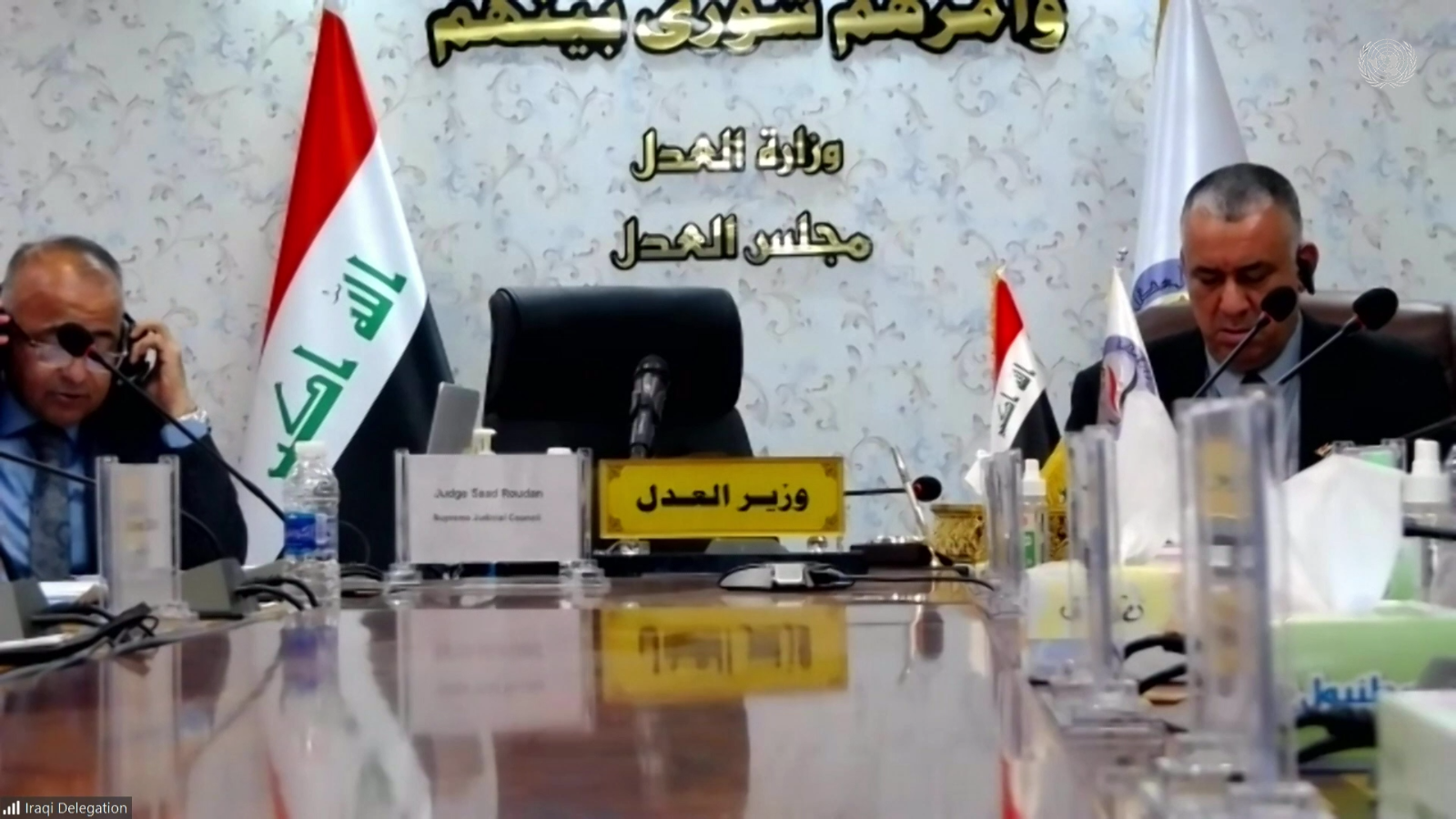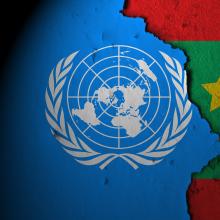April 11, 2022

Enforced disappearance and torture
Iraq remains the country with the highest number of enforced disappearance cases worldwide, with estimates ranging from between 250,000 and one million missing persons. Authorities have consistently failed to ensure the cessation of this practice, resolve cases of disappearances, or provide remedies to the affected families.
Illustrative of the lack of political will to combat the practice, the State party has yet to incorporate the crime of enforced disappearance into its domestic law as an autonomous offence, as required by article 2 of the International Convention for the Protection of All Persons from Enforced Disappearance. A bill on the protection of persons from enforced disappearance is currently before the Council of Ministers for final approval.
Apart from disappearances, there have also been reports of widespread torture and ill treatment of prisoners in different stages of detention, especially the interrogation phase. Although article 37 of the Constitution and article 218 of the Code of Criminal Procedure both stipulate that confessions extracted under torture shall be disregarded, the Committee has noted that practice shows the contrary.
Furthermore, the Iraqi legal framework prohibiting torture is inconsistent with the Convention against Torture (UNCAT), which Iraq ratified in 2011 as it does not “adequately ensure that acts covered by the internationally accepted definition of torture are fully criminalised.”
The Committee noted with interest that an anti-torture bill was under consideration by the Council of State. The bill requires a judge to order a medical examination of any detainee alleging torture within 24 hours of learning of the allegation. Yet, MENA Rights Group is concerned that the proposed definition of torture is not in line with article 1 of the UNCAT.
The UN experts requested that Iraq take all necessary steps to expedite the adoption of these two bills as the first step in ensuring the cessation of these longstanding and problematic practices.
Crimes committed by ISIL
When the Islamic State of Iraq and the Levant (ISIL) occupied large areas of Iraq, the group reportedly committed war crimes, crimes against humanity and genocide against ethnic and religious minorities.
Members of the Committee welcomed renewed efforts from the Iraqi authorities to investigate cases related to the slavery of Yazidi Kurdish women and children, including the establishment of an ISIL Crime Investigation Unit. Additionally, a distinct judicial body has been set up to document and investigate crimes that have occurred against the Yazidi population in the governorate of Nineveh.
Death penalty
As highlighted in previous Concluding Observations, the Committee found it concerning that several offences contained in Iraqi law do not meet the threshold of “most serious crimes” within the meaning of article 6(2) of the ICCPR. The Committee also expressed concern over the fact that the death penalty remains mandatory for certain crimes and that certain crimes punishable by death, most notably terrorism crimes, are explicitly excluded from being granted special pardon.
In 2019, Iraq was the fourth largest executioner in the world with more than 100 executions carried out. The same year, a 92 % increase in recorded executions was reported due to the continued use of the death penalty against individuals accused of being members of, or affiliated to, ISIL.
Ahead of the review, Iraq claimed that the death penalty was required because of the “extraordinary security situation” and serves as a deterrent to acts of terrorism. UN human rights experts have regularly and consistently raised concerns about death sentences under the Anti-Terrorism Law being pronounced after trials that did not respect the fundamental principles of due process and fair trial, with confessions extracted under torture admitted as evidence.
Freedom of expression and peaceful assembly
Since the beginning of nationwide protests in October 2019, Iraqi security forces and armed militias have subjected peaceful demonstrators to extremely violent attacks, resulting in the death of hundreds and injuries to tens of thousands of individuals.
While noting that fact finding commissions had been established to investigate allegations of human rights violations and ensure accountability in relation to the 2019 demonstrations, the Committee regretted that the State party failed to provide any information regarding the outcome of these investigations.
As a result, the Committee urged Iraq to “take the measures necessary to investigate and prosecute in a timely manner all reported cases of human rights violations” including allegations of torture, arbitrary detention, enforced disappearance and other violence. They further requested that perpetrators of such crimes be held accountable.
Furthermore, the Committee expressed concern at allegations that journalists and media workers were subjected to attacks and intimidation by both State and non-State actors, as well as prevented by security forces from covering stories.
In March of 2020, the Council of Representatives reintroduced an amended draft Law on Freedom of Assembly and Peaceful Demonstrations. Although the parliament has yet to vote on the law, the draft threatens to place severe restrictions on the right to protest. The text authorises the use of force to disperse peaceful assemblies organised “contrary to the provisions of the Law”, and punishes assembly organisers with imprisonment for six months to one year if the demonstration was organised without providing the authorities with prior notification.
In terms of freedom of expression, Iraqi law still contains several provisions that are not in line with article 19 of the ICCPR. The Committee noted with regret that “the Criminal Code includes provisions that may limit freedom of expression, such as article 433 on defamation and insult.”
Lastly, a draft law on Combating Cybercrimes was reintroduced before parliament in 2020 which criminalises imprecise use of the internet “with the intention of obtaining data or information affecting the national security or the national economy of the country.” The use of vague terms such as “affecting the national security” provide the judicial authorities with widespread discretion that may enable the targeting of journalists, activists and whistle blowers.
Next steps
Iraq is expected to submit, no later than March 25, 2025, specific and up-to-date information on its implementation of the recommendations made by the Committee, with a particular focus on transitional justice, counter-terrorism measures, and the prohibition of torture and other cruel, inhuman or degrading treatment or punishment.






